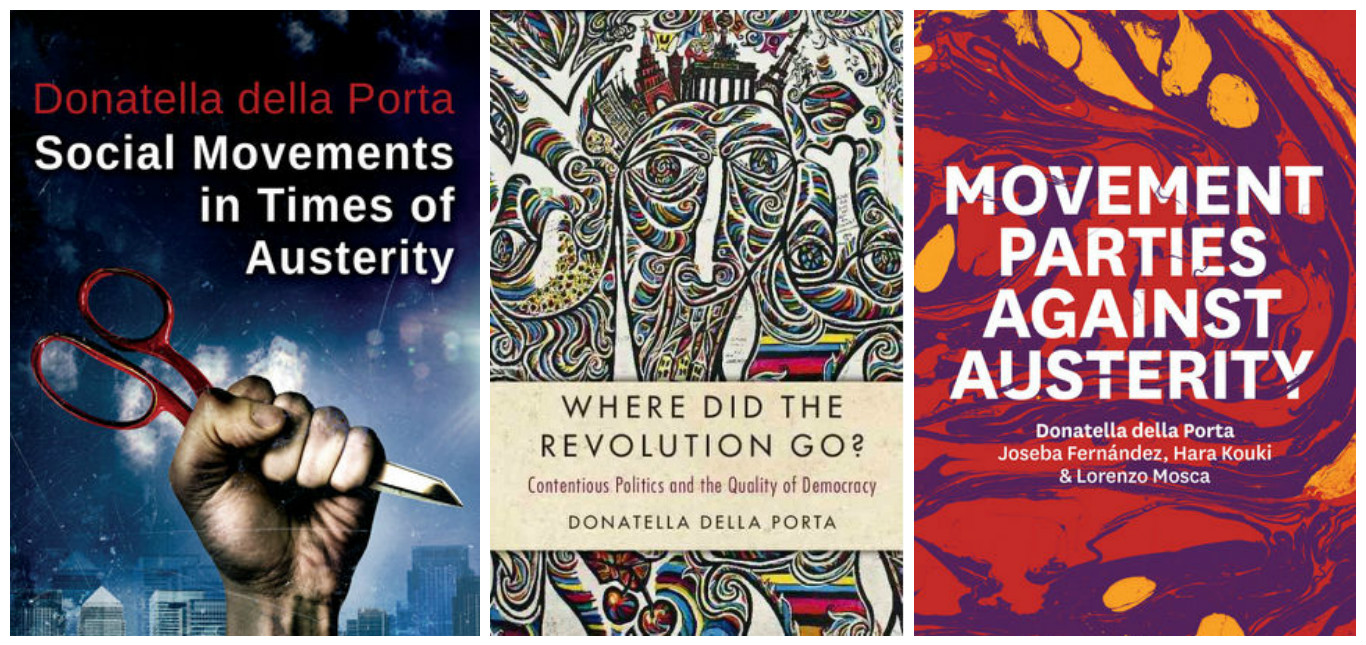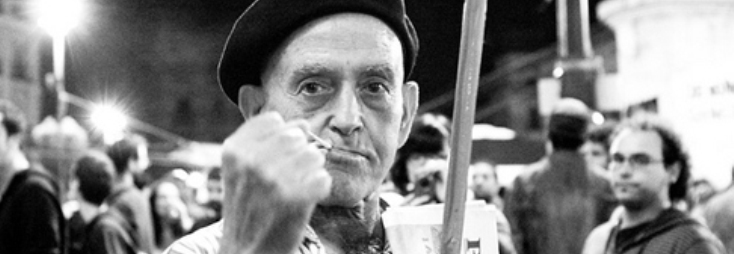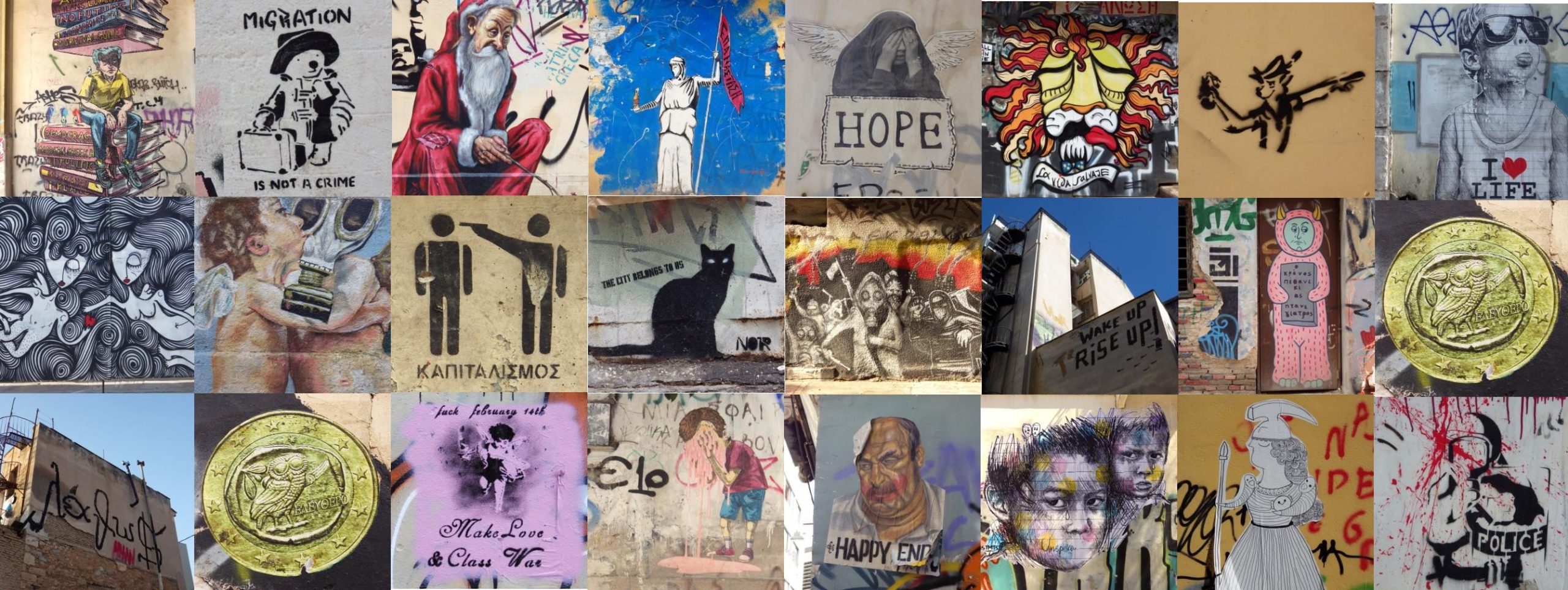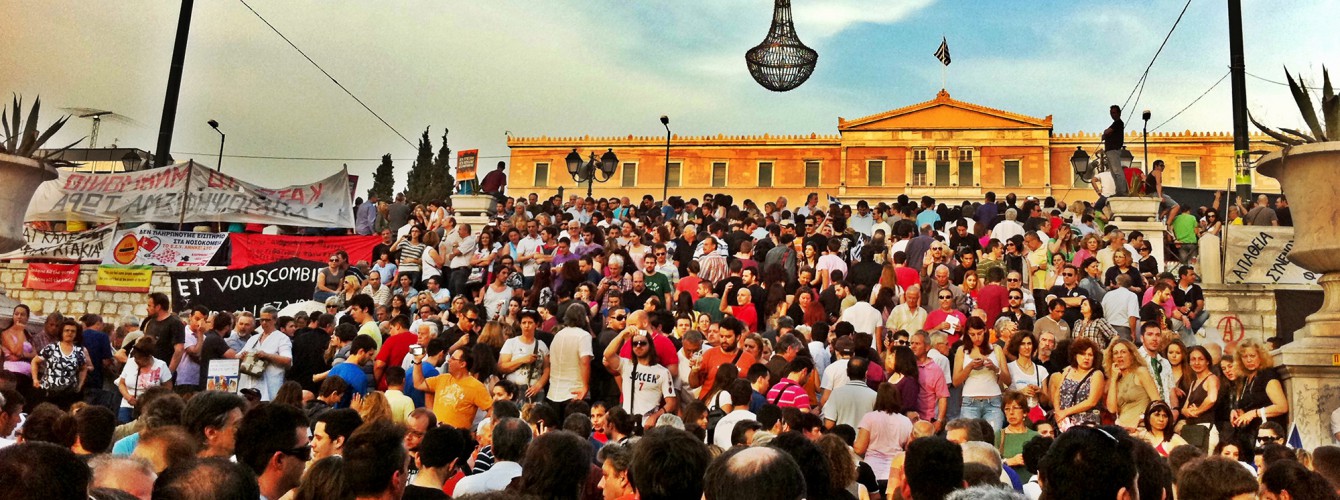Donatella Della Porta is professor of Political Science and Dean at the Institute of Human and Social Sciences at the Scuola Normale Superiore (Italy, Florence), where she directs the Center on Social Movement Studies (Cosmos). Between 2003 and 2015 she has been Professor of Sociology at the Department of Political and Social Sciences at the European University Institute.
The main topics of her research are social movements, political violence, terrorism, corruption, the police and protest policing. Between 2008 and 2013 she has co-edited the European Political Science Review (ECPR-Cambridge University Press) as well as the Contentious Politics series at Cambridge University Press. Since 2015 she co-edits the European Journal of Sociology (Cambridge University Press). In 2011, she was the recipient of European Consortium for Political Research Mattei Dogan Prize for distinguished achievements in the field of political sociology. In August 2017 she will be Plenary Speaker at the 13th Conference of the European Sociological Association: (Un)Making Europe: Capitalism, Solidarities, Subjectivities in Athens, Greece.
Professor Della Porta is the author of 85 books, 130 journal articles and 127 contributions in edited volumes. Her recent publications include Social Movements in Times of Austerity: Bringing Capitalism Back Into Protest Analysis (2015), Late Neoliberalism and its Discontents in the Economic Crisis – Comparing Social Movements in the European Periphery (2016), Where Did the Revolution Go? Contentious Politics and the Quality of Democracy (2017), and Movement Parties Against Austerity (2017).
 Donatella Della Porta spoke to Rethinking Greece* about social movements in times of austerity and electoral democracy, their cultural effects and partial institutionalization, as well as their moral critique on the corruption of representative democracy. She comments on the differences and similarities between the movements of the European South and underlines their heterogeneity and their concern for national sovereignty, while she also stresses the need for a cosmopolitan vision and transnational alliances between them. She believes that those who are able to develop alternative forms of governance, or cosmopolitan/pan-European identities are those who come from these movements. On an international level she anticipates that there will be a stronger and stronger struggle between progressive and regressive forces with an uncertain result. As far as Greece is concerned, she believes that it still is a laboratory for the progressive forces, asserting that the mobilizations of the previous years have produced important outcomes.
Donatella Della Porta spoke to Rethinking Greece* about social movements in times of austerity and electoral democracy, their cultural effects and partial institutionalization, as well as their moral critique on the corruption of representative democracy. She comments on the differences and similarities between the movements of the European South and underlines their heterogeneity and their concern for national sovereignty, while she also stresses the need for a cosmopolitan vision and transnational alliances between them. She believes that those who are able to develop alternative forms of governance, or cosmopolitan/pan-European identities are those who come from these movements. On an international level she anticipates that there will be a stronger and stronger struggle between progressive and regressive forces with an uncertain result. As far as Greece is concerned, she believes that it still is a laboratory for the progressive forces, asserting that the mobilizations of the previous years have produced important outcomes.
Can you talk to us about your latest book “Movement Parties against Austerity”?
The book grew out of the observation of the increasing relevance of electoral politics for social movements. This became very visible in Greece with the electoral victory of Syriza but also in several other places: Podemos in Spain, Bloco de Esquerda in Portugal; we also have the Left-Green Movement in Iceland, and more recently “La France Insoumise” with Mélenchon in France. So we see an unexpected return of the “Left-Left”, as the French call it, in the electoral arena, which is very much related to social movements’ mobilizations. Even if none of these parties can be seen as the only and direct expression of the movements, there are nevertheless many overlaps in terms of the types of claims these parties and movements put forward, the forms of action taken and the importance given to political participation.
These parties developed from movements that were very dissatisfied with representative democracy and electoral politics; in the beginning they seemed not to be interested in becoming an alternative type of political party. So, I wouldn’t have expected hat, for instance, the Indignados of 2011-2012, people who were outraged with the corruption of participatory democracy, would also start thinking in terms in electoral alternatives. And this is just one of the expressions and outcomes of social movements in terms of their impact on electoral democracy. We are also seeing campaigns and referendums, like the ones in Scotland and Catalunya, or the referendum against the privatization of water in Italy -which has grown with from very dynamic social movements. We are also witnessing the development, within established parties, of a sort of left-wing opposition, like Sanders and the Democratic Party in the United States, like Corbyn in the UK, and also a change in established parties, like the Socialist Party in France, where totally unexpectedly, a left-wing candidate won the primary election. These are some expressions of the interaction between movement politics and electoral politics that we analyze in the book.
The movements that developed after 2011 in Europe seem to have died down. What is your take on this?
Research shows that movements tend to develop in cycles or in waves: people cannot stay in the streets or in the squares forever. The evolution of these cycles could bring about, in the declining phase, a radicalization of fractions of the movements that start using a violent repertoire of actions, like what happened in the 70’s in Italy and in Germany. On the other hand, and sometimes at the same time, we have a sort of institutionalization of parts of the social movements. It is no by chance that these kind of effects develop when mobilization is declining, as the activists experiment with many different tactics and repertoires in order to come up with solutions to the diminishing turnout in protest events.
 Furthermore, we have the cultural effects of the protest movements, effects on worker unions, like the “white wave” or ‘marea blanca’ that was organized in Spain from health-care professionals against cuts to the budget of the country’s public health services, or the development of alternative citizen-run health clinics, food centres, kitchens and legal aid hubs that came along with the movement of the squares in Greece. So there are various ways through which the people that had protested in the streets keep trying to change the future.
Furthermore, we have the cultural effects of the protest movements, effects on worker unions, like the “white wave” or ‘marea blanca’ that was organized in Spain from health-care professionals against cuts to the budget of the country’s public health services, or the development of alternative citizen-run health clinics, food centres, kitchens and legal aid hubs that came along with the movement of the squares in Greece. So there are various ways through which the people that had protested in the streets keep trying to change the future.
Also, parties themselves change because of mobilization in the streets. It happened with the labour movements of the 19th century, or with the environmental movements with the emergence of the Green parties. What we are seeing today is quite common after the end of protests: when activists stop being in the streets, they often try to develop parties which they believe could help achieving the aims of the movements.
What is interesting at this particular moment is that these parties grow so fast and become so big, up to the point where they are entering positions in government, after national or local elections like in Greece, Portugal or Spain. So the unusual development that we address in our book, is not that parties emerge from movements, but that these parties become so competitive and powerful in the electoral arena.
What do you believe has been the impact of social movements in party system politics? Has it brought something new to the way parties operate and are organized?
In the book we compare three parties that in many ways were related to social movements, Syriza, Podemos and the Five Star movement, and then we compare them with similar parties in Latin America, some of which started on a similar type of dynamics. Ιn Latin America, this happened much earlier than in Europe, so we can see the long term effect of these parties being in power. And what we see are different things.
In the beginning these parties tend to adopt some of the movements’ principles. So, we have parties that are more participatory than traditional ones, more engaged in attempts to open up beyond the members and that attempt to incorporate the criticism of the top-down organization.
However this is not always easy to do, because movement parties have to take into account different types of arenas: on one hand you have the movements, which they take ideas from, and on the other the electoral arena, the party system. And they sort of adapt to both, developing different alternative tactics and adopting general trends, like the personalization of politics. Furthermore, as parties evolve the type of members changes: they tend to include disappointed members and even leaders of other parties, with very different perspectives and priorities than the activists and supporters of the beginning. This brings about changes and even creates tansions within the parties themselves, like in Podemos, where a controversy devoloped between those who pushed towards the original relations with social movements and those stressing the constraints of electoral politics.

Also, these parties have different and this is reflected in their evolution. For example, SYRIZA and Podemos are often referred to as twin parties but they developed in different ways. However, SYRIZA grew from a previous wave of protests during the global justice movement, while Podemos developed from the 2011 Spanish protests against austerity.
Could you briefly describe the similarities and differences between protest movements across South European countries?
We see both similarities and differences. So in terms of the type of capacity of mobilization, forms of action, actors involved and so on, in Southern Europe you have these two constellations: on the one hand movements in the squares, very innovative and active in Spain and Greece, and on the other hand, more traditional forms of protest in Italy and Portugal. What was similar in all countries is the fact that there was a criticism of neoliberalism, of social injustice and of increasing inequalities. Also all the movements were very pluralist, involving different social groups, from the precarious workers to retired people, from workers in the big factories to civil servants. They also involved different generations. Young people in particular were very much present and one can say that these movements spark the development of a very committed generation of young people.
Another thing protest movements accross South Euroopean countries have in common is that the criticism of neoliberalism is a political as well as a moral, addressing the corruption of representative democracy and the lack of capacity of representative institutions to live up to their own standards, to deliver what they promised. In all countries the conceptions of social, political and civil rights were so very deeply rooted that the attempt to take them away produced an indignant, outraged reaction.
Which broader social and economic transformations does the emergence of protest movements reveal? Are we witnessing the emergence of a new political identity?
The creation of collective identities is a long process; it usually takes a lot of time, even more so in this case because these movements are very heterogeneous. Their heterogeneity is reflected in how difficult it is to find a shared term for them. For example in Spain protesters were called 15 de Mayo, 15M, or Real Democracy, journalists called them Indignados; the multiplicity of names testifies to the fact that there is not yet a specific collective identity those participating in the movements. There is however a search for an identity, reminiscent of what Ernesto Laclau called “populist reasoning” in the sense of attempting to create a new definition of the people. This attempt has produced a sense of empowerment; particularly in Spain or in Greece there are generations of people that took politics into their hands and became deeply politicized during the mobilization in the streets. As of yet there is however no strong common collective identity, and I think there couldn’t have been yet one: a common identity, as we can see from previous movements, can take years and even centuries to form. However, this sense of empowerment, of political participation, of search for a combination of justice and freedoms is spreading. This also explains why, not withstanding some decline in mobilization, these are movements that didn’t die: they keep re-emerging in different countries. So, in 2011 there was Spain and Greece, in 2013 it was Gezi Park in Turkey, protests in Brazil and other countries, and, less than a year ago the “Nuit Debut” in France, which showed a strong capacity to mobilize the people. Thus, a common identity does not exist yet, but it is in the making.
Is there a transnational or cross-European interconnectedness between anti-austerity movements?
There has been a difference in the way European issues and global issues have been addressed by the global justice movement, the World Social Forum and European Social Forum in the beginning of the years 2000 on one hand, and the movements and anti-austerity protests of 2011 on the other. In the previous wave, protest started globally and then it shifted to the local and national level. The recent wave of protests that developed in Europe was very rooted in the characteristics and the timing of the crisis at a national level. You had the 2008-2009 crisis in Iceland, and then it moved to Ireland and Portugal, Spain and Greece, nowadays in France. Also, the issues of national sovereignty are more directly addressed by these movements. At the same time, these movements develop ideas for a different type of Europe, so they are not nationalist in terms of an exclusionary type of nationalism. They are moreover trying to develop European and transnational linkages, even though, while in the previous decades this was more straightforward and easier, now it is a challenge. However, it is something that is starting to happen now: you have pan-European union protests and campaigns against TTIP and so on, even if they are still not well developed.
European social protest movements sometimes seem to call for a return to national sovereignty and to classical social democracy, instead of calling for a more radical alternative to capitalism. What is the political vision of those participating in the protests?
As I mentioned earlier, the movements are quite heterogeneous: you find different positions within the same movement. For sure, there is a much more concern, compared to the past, with the issue of national sovereignty. This is understandable, given the characteristics of the crisis, which was very much driven and then controlled at a transnational level. So people think, given the democratic institutions at a national level, it is unfair that unaccountable institutions, like Ecofin, European Central Bank and so on, make decisions for us. At the same time, in most of the cases there is still an understanding that it is not sufficient to go back to national sovereignty, that you need to develop a cosmopolitan vision and transnational alliances between the movements.
 In terms of an alternative to capitalism, again the movements are quite heterogeneous. There are those that claim a return to old laws and rights and welfare state protection; this is also understandable in a situation where these rights have been taken away -the first claim is give us back what is our rights. But at the same time, there are some innovations, like the idea of the commons, of creating a space for something which is neither in the form of top-down welfare state, nor in that of the privatization or commoditization of services. It is an attempt to develop ideas about how citizens could participate in the management of common spaces and common goods. These are not ideas which are easy to establish. Likewise, initiatives like the alternative clinics or welfare services in Greece and the mareas in Spain are searching for a more radical alternatives but this search requires time; it is not a moment where you say, oh, I got the right idea. It’s a process of testing, adapting, transforming, searching for the right way.
In terms of an alternative to capitalism, again the movements are quite heterogeneous. There are those that claim a return to old laws and rights and welfare state protection; this is also understandable in a situation where these rights have been taken away -the first claim is give us back what is our rights. But at the same time, there are some innovations, like the idea of the commons, of creating a space for something which is neither in the form of top-down welfare state, nor in that of the privatization or commoditization of services. It is an attempt to develop ideas about how citizens could participate in the management of common spaces and common goods. These are not ideas which are easy to establish. Likewise, initiatives like the alternative clinics or welfare services in Greece and the mareas in Spain are searching for a more radical alternatives but this search requires time; it is not a moment where you say, oh, I got the right idea. It’s a process of testing, adapting, transforming, searching for the right way.
Can this movements contribute to solving the problem of democratic deficit in EU?
Yes, I think that this is an achievement already. The democratic deficit of Europe is very clear: what is not clear yet is if those who are in charge at the European level understand the danger for them. I believe that those who are able to develop alternative forms of governance, or cosmopolitan/pan-European identities are those who come from these movements. But they need to be listened to, because otherwise, those that refuse any form of Europeanization on the basis of an exclusionary and nationalist, xenophobic identity,will become more and more powerful. It happened in the UK, it happened in Hungary, it is also happening with the increase of illiberal regimes all over the world -take Turkey as an example.
How do you see this issue evolving in the future?
A social scientist never predicts. A reason why it is difficult to make a prediction is that right now there are intense conflicts between progressive and regressive visions. The old establishment is in crisis, but the new one is to be born yet, like Antonio Gramsci said. So, what you see is the development of strong conflicts and all possibilities are quite open. Take the United States as an example, we have Trump now, but it could have been Sanders. Take the French election. Anything can happen in a few days in France. It could be that in the second round you have two right-wing candidates, but it could also be that a left-wing candidate wins. So, overall, the only thing that we can predict is the capacity of the people to mobilize and at this momoent that there isiindeed an understanding that it is important for people to act. However, at the same time, powerful regresive forces also tend to organize. So the prediction is that there will be a stronger and stronger struggle between progressive and regressive forces, with an uncertain result. If I want to end this conversation on an optimist view, my understanding is that right now regressive forces do not have a strategy, so they are taking a high-stakes gamble. Take Erdogan in Turkey, Trump in the US, Orban in Hungary. They are daring a lot and I don’t think that they will succeed. rdogan has been resisted by progressive forces, Trump has caused a lot of damage already, but he has also generated a lot of movements; there was the March of Women in Washington, there is the March for Science on April 22. These movements seem to be able to mobilize people, to create a convergence between different social strata and I really hope that they will successful.
How you comment the political situation in Greece now?
I think that the situtation is not easy, but at the same time Greece is still a laboratory for the progressive forces. From what I can say from my limited knowledge of the country, what we see, even in the refugee crisis, is that those new values like solidarity, like empowerment, daring to take the destiny in your own hands didn’t decline with the end of mobilizations. Or are least didn’t disappear. The movements, the different moments of mobilizations since 2008 and then in 2011, produced important outcomes, they were not for nothing. But as an activist in Egypt once told me, “we thought that the revolution was a moment, we realize that it is a process”, and I think this is the case for Greece also.
*Interview by Ioulia Livaditi















